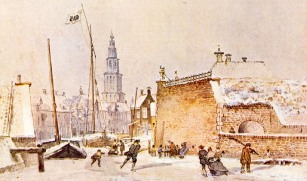
On this page, you find course material for the 14th Winter School for Longitudinal Social Network Analysis with the RSiena software, and for the Advanced Siena Users' Meeting (AdSUM-2024) organized by Christian Steglich and Tom Snijders with the help of Anita van der Hoek at the University of Groningen. The workshop takes place in the week of 22-26 January 2024. |
|
The course will consist of lecture elements, Q&A sessions, and practical work on R scripts. It is assumed that the participants have a good basic understanding of statistical methods, including regression and logistic regression, some understanding of basic concepts in social network analysis, and a good working knowledge of R.
1. Modelling network dynamics: slides 2. Lab exercise: analysis script and MBA data set 3. Lab exercise: simulations with SAOM and slides on that topic (from a different workshop) 4. Lab exercise: network dynamics with actor attribute predictor, studied in school class data imported from text files
1. Modelling peer influence: slides 2. Lab exercise: analysis script 3. Lab exercise: co-evolution of alcohol consumption and friendship and customized behavior fit functions 4. Lab exercise: two networks co-evolving (MBA data) IF THERE IS TIME, we can briefly address the topic of influence in two-mode networks: 5. Two-mode networks modelling: some older slides, and a lab exercise: two-mode network analyses7. Optional lab exercise: network dynamics of undirected networks, studied in preferential trade agreements between countries
Voted-on topics: slides > Lab exercise moderation: analysis script > Absent data: slides, analysis script illustrating structural zero and composition change file treatment, R markdown example on missing data multiple imputation for networks, and another R Markdown example on Multiple Imputation networks & behaviour > Lab exercise multi-group data: archive with script & data > Lab exercise diffusion: archive with script & data > Lab exercise two-mode analysis: archive with script & data > Lab exercise valued networks: archive with script & data
The Master Class paper discussion (in order of discussion):
RSiena development at GitHub and RSiena users' community.
|